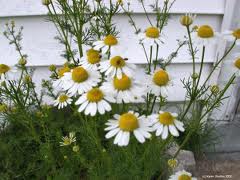|
We have some great Herbal products for you, including our Rosewood Guilt-free Celebration cake for smaller animals - we delicious we are told!
If your are looking for essential oils to calm your dog, then do check our Aroma range of calming toys. While you are on our website, do have a look at the brilliant toys we have available - in fact, we have just about everything for your dog, and not forgetting kitty and the other small critters! www.mcmac.co.za |
How herbs can help relieve stress-related problems in animals
by Jimmy Symmonds – www.happinessis.co.za(visit the Happiness Is site to see if you qualify for free Bulbine seeds!)
If you are interested in Herbs, do sign up for the Happiness Is Newsletter and visit their site for news of upcoming workshops)
.

Herbs have an important role to play in stress-related problems in animals. When used appropriately, and as part of an integrated approach to wellbeing, herbs can ease the symptoms of stress by helping to calm the mind and relax the body.
Modern science can now explain many of the effects of these herbs. Research into the functioning of nerves at a molecular level has led to the discovery of a number of important chemical messengers (neurotransmitters) that can be affected by herbs. These chemical messengers play a number of different roles in the healthy functioning of the central nervous system. Traditionally, herbs that affect the nervous system are referred to as nervines and are broadly classified by their effects on the nervous system:
§ Nervine Tonics that generally strengthen, nourish and restore the nervous system and nervous tissues (like St John’s wort and pennywort).
§ Nervine Relaxants that relax the nervous system (like chamomile, passionflower, lemon balm and valerian).
§ Nervine Stimulants that stimulate the nervous system (like rosemary, black tea and coffee).
Because modern living is stressful at times, the relaxing and tonic herbs have an important role to play in human and animal wellbeing. Getting to know them better and understanding their uses allows you to play a more active role in the wellbeing of your animals. Many herbs can also easily be grown in your own garden and used as first-aid in mild upsets, or to help prevent disease.
Here is an example of a simple, calming recipe for mild anxiety:
§ chamomile flowers
§ lemon balm leaves
For dogs, you may use ½ teaspoon of each (per 10 kg) mixed in with some wholesome, tasty food twice a day as a helpful aid in relaxing the nervous system. Because chamomile and lemon balm also have calming affects on the digestion (see carminatives), this recipe would be most helpful when nerves are upsetting the digestion leading to a poor appetite, or mild indigestion.
Important: Always consult your veterinarian if your animal is on medication, pregnant, lactating or undergoing surgery before using herbs
Modern science can now explain many of the effects of these herbs. Research into the functioning of nerves at a molecular level has led to the discovery of a number of important chemical messengers (neurotransmitters) that can be affected by herbs. These chemical messengers play a number of different roles in the healthy functioning of the central nervous system. Traditionally, herbs that affect the nervous system are referred to as nervines and are broadly classified by their effects on the nervous system:
§ Nervine Tonics that generally strengthen, nourish and restore the nervous system and nervous tissues (like St John’s wort and pennywort).
§ Nervine Relaxants that relax the nervous system (like chamomile, passionflower, lemon balm and valerian).
§ Nervine Stimulants that stimulate the nervous system (like rosemary, black tea and coffee).
Because modern living is stressful at times, the relaxing and tonic herbs have an important role to play in human and animal wellbeing. Getting to know them better and understanding their uses allows you to play a more active role in the wellbeing of your animals. Many herbs can also easily be grown in your own garden and used as first-aid in mild upsets, or to help prevent disease.
Here is an example of a simple, calming recipe for mild anxiety:
§ chamomile flowers
§ lemon balm leaves
For dogs, you may use ½ teaspoon of each (per 10 kg) mixed in with some wholesome, tasty food twice a day as a helpful aid in relaxing the nervous system. Because chamomile and lemon balm also have calming affects on the digestion (see carminatives), this recipe would be most helpful when nerves are upsetting the digestion leading to a poor appetite, or mild indigestion.
Important: Always consult your veterinarian if your animal is on medication, pregnant, lactating or undergoing surgery before using herbs





